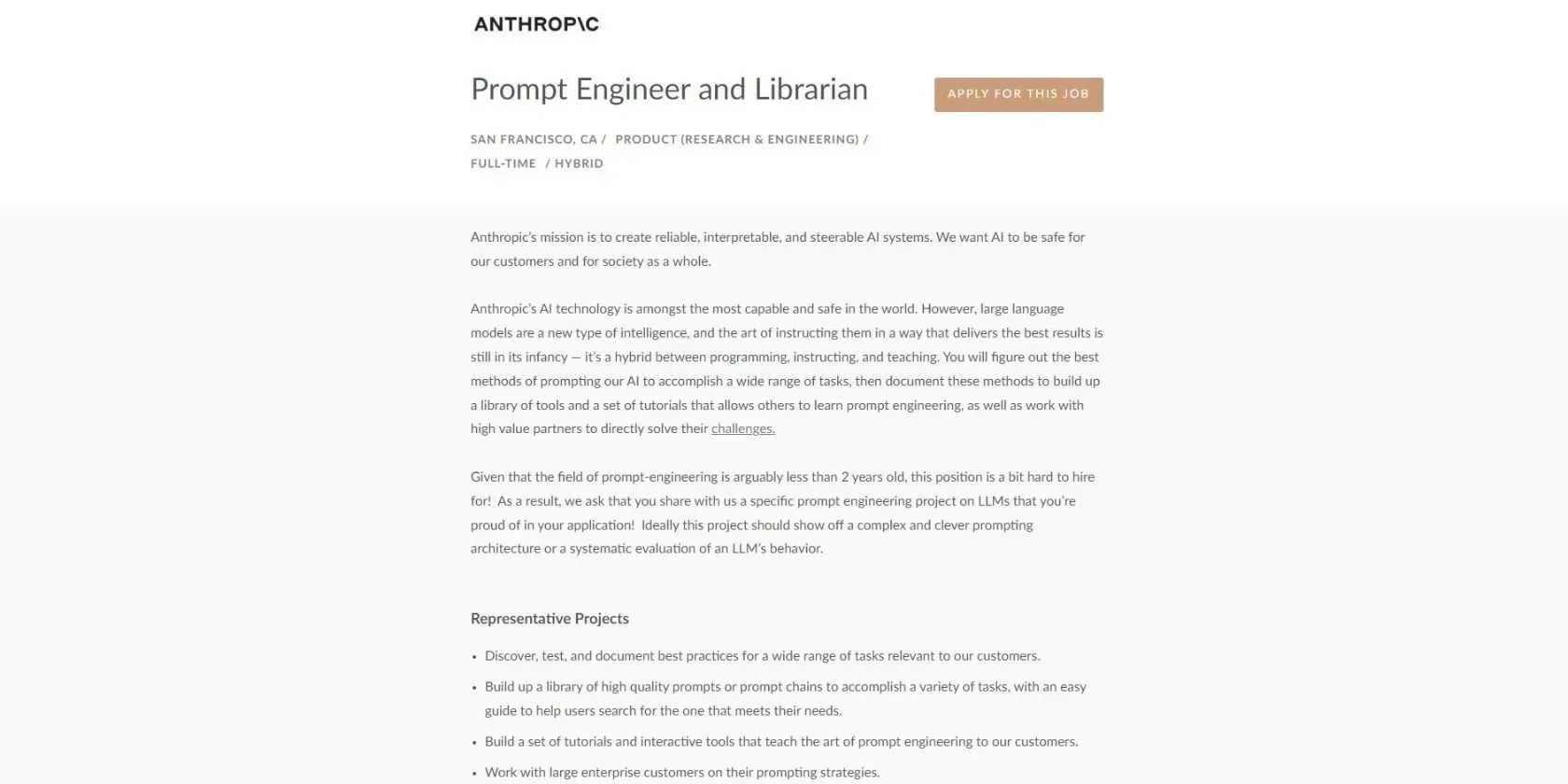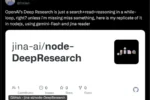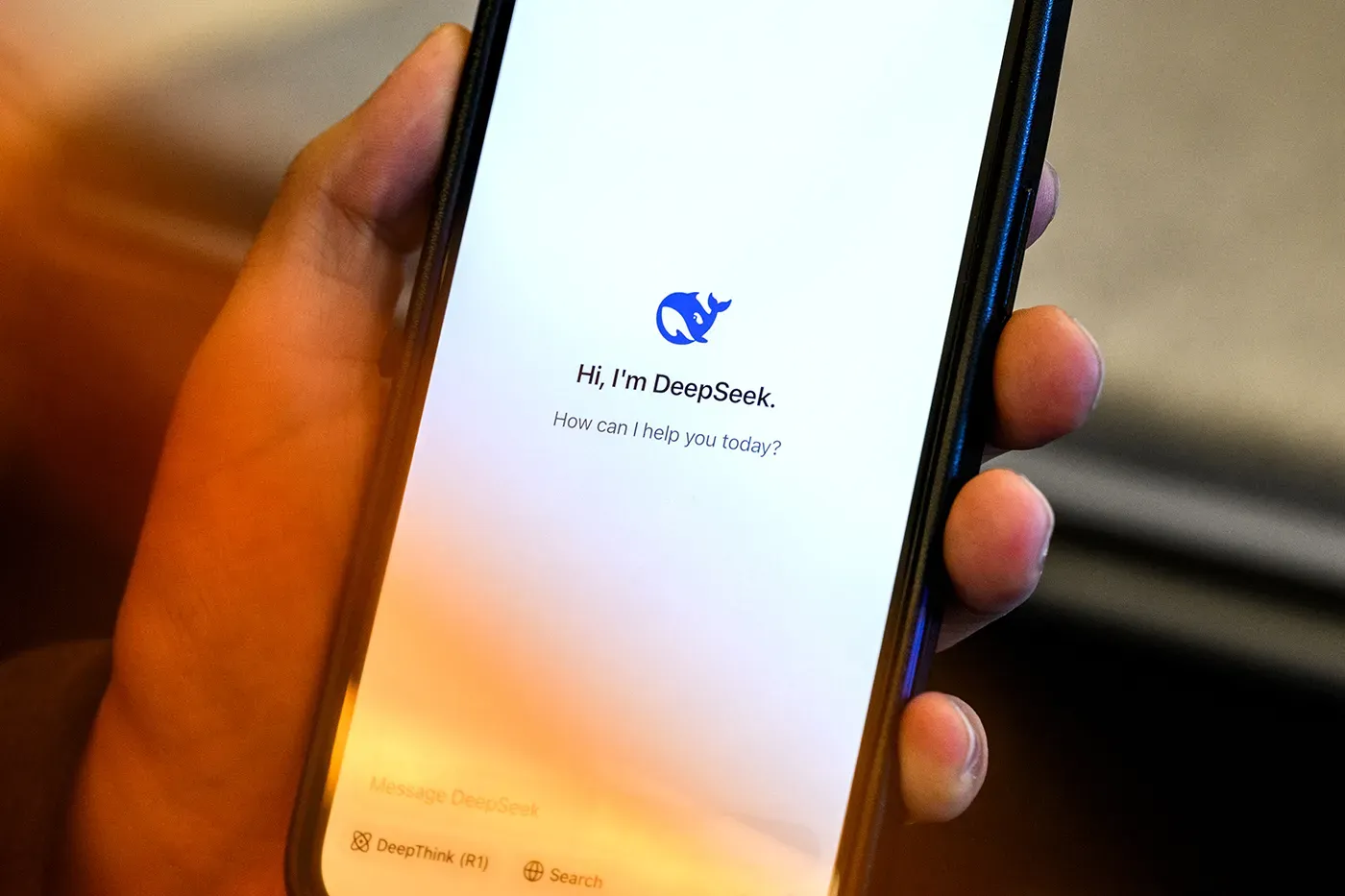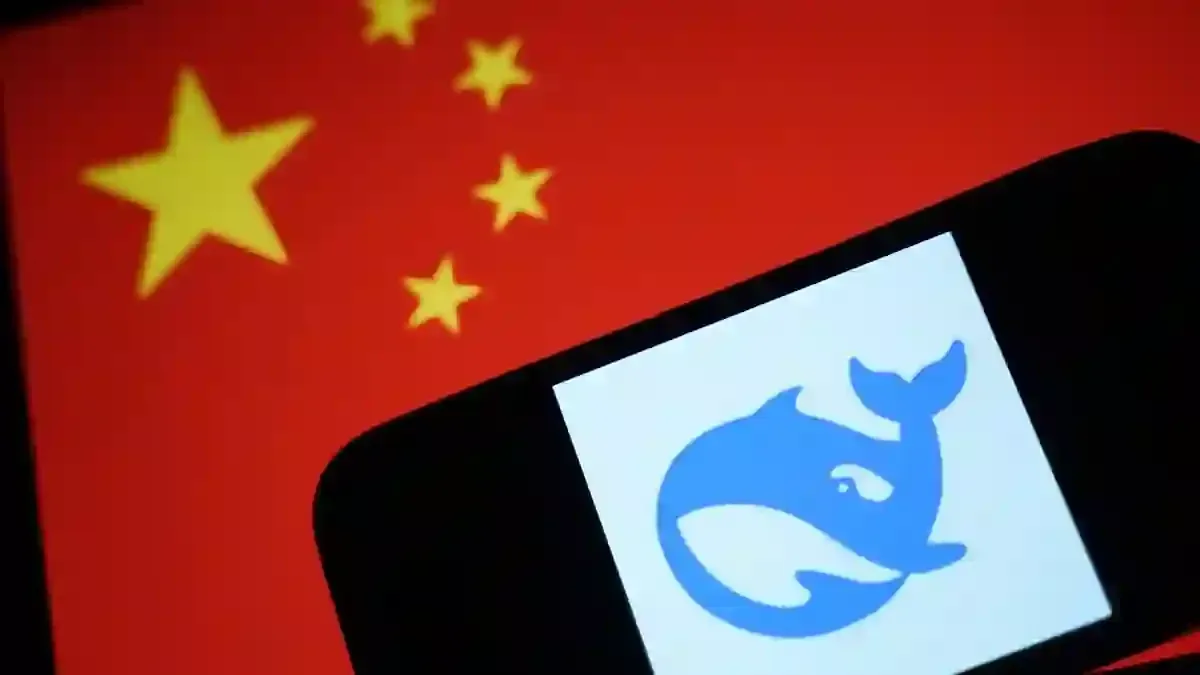The Anthropic AI job application process presents a unique paradox that highlights the evolving dynamics of AI in recruitment. While Anthropic advocates for the use of its Claude LLM to enhance communication skills among employees, it paradoxically discourages applicants from leveraging AI tools in their job submissions. This contradiction raises questions about employer hypocrisy, as the company seeks to assess candidates’ genuine communication abilities without the aid of AI. As organizations increasingly integrate AI communication skills into their workflows, the tension between promoting these technologies and maintaining authentic human interaction becomes ever more pronounced. Understanding this duality in the job application process is crucial for prospective candidates aiming to align their skills with Anthropic’s expectations and values.
Navigating the application procedure for positions at Anthropic involves grappling with the company’s distinct stance on artificial intelligence usage. Candidates are urged to present their authentic communication capabilities devoid of AI assistance, despite Anthropic’s promotion of its Claude LLM as a tool for enhancing workplace communication. This creates an intriguing scenario where the very technology that empowers employees is deemed unsuitable for job seekers. As the landscape of employment evolves with the integration of machine learning in hiring practices, the implications of such policies merit closer examination. By exploring alternatives to traditional application methods, both applicants and employers can foster a more equitable and transparent recruitment environment.
The Paradox of AI in Job Applications
In a world where AI tools like Anthropic’s Claude LLM enhance communication and productivity, the contradiction in their job application process raises eyebrows. Anthropic advises applicants to refrain from using AI when submitting their applications, despite promoting AI as a vital resource for effective communication in the workplace. This paradox emphasizes the tension between wanting genuine human insight in job applications and acknowledging the utility of AI in refining communication skills. It poses an important question: should applicants be penalized for utilizing advanced tools that many employers encourage in actual job roles?
The irony is palpable as Anthropic champions Claude LLM for improving communication among its clients while simultaneously insisting that applicants demonstrate their raw, unassisted communication capabilities. This duality suggests a deeper hypocrisy within corporate hiring practices, where AI is embraced for its efficiency and effectiveness, yet its use is discouraged in the initial steps of recruitment. The dilemma illustrates the broader challenge faced by companies today in reconciling the benefits of AI with traditional recruitment methods that prioritize human input.
AI Communication Skills vs. Employer Expectations
The insistence on non-AI-assisted applications reveals employer concerns about authenticity and personal insight. When applicants are asked ‘Why do you want to work here?’ the expectation is that their response reflects genuine thoughts and motivations. However, this raises the question of whether traditional evaluation methods can effectively gauge a candidate’s fit in an era increasingly dominated by AI tools. The focus on unmediated communication skills may overlook the potential benefits that AI could bring to the recruitment process, such as highlighting a candidate’s unique capabilities through enhanced articulation.
Moreover, the reliance on human-authored content may inadvertently reinforce biases in the hiring process. Applicants who are well-versed in AI-assisted communication might have an advantage in expressing their ideas more clearly, yet they are penalized for utilizing tools that could enhance their communication. This presents a paradox where the very skills that employers are looking for—effective communication and articulation of thoughts—are being hindered by outdated hiring practices. Companies like Skillfully, which leverage AI to identify candidates based on skills, suggest a shift in how recruitment can evolve alongside AI capabilities.
The Role of AI in Recruitment Today
As the recruitment landscape evolves, the traditional methods of evaluating candidates through written applications are becoming increasingly questionable. Companies like Anthropic that develop AI tools must reconsider their hiring practices to adapt to the changing realities of AI-assisted job applications. With AI capable of producing nuanced, human-like text, it becomes challenging to discern the genuine thoughts of candidates from AI-generated content. This raises the need for innovative assessment methods that can truly capture an applicant’s capabilities and fit within a company.
The emergence of AI-powered recruitment platforms like Skillfully reflects a growing recognition of the limitations of traditional application processes. By focusing on demonstrated skills rather than written narratives, these platforms aim to streamline the hiring process and provide a more accurate representation of a candidate’s potential. This shift is essential as employers seek to navigate the complexities of AI tools in the workplace while ensuring they select candidates who can thrive in an increasingly automated environment.
Understanding Employer Hypocrisy in Job Applications
The contradiction in Anthropic’s job application process points to a broader issue of employer hypocrisy regarding AI in recruitment. While organizations endorse AI as a means to improve employee efficiency and communication, they simultaneously impose restrictions on its use during the application phase. This inconsistency may stem from a fear of losing control over the recruitment process or a desire to maintain a traditional approach to assessing candidate qualifications. However, this mindset risks alienating skilled applicants who are proficient in leveraging AI tools for communication.
Moreover, such hypocrisy can lead to a disconnect between what employers preach and what they practice. If companies genuinely value effective communication, they must embrace the role of AI in enhancing that communication rather than viewing it as a crutch that undermines authenticity. By reevaluating their stance on AI-assisted applications, employers can align their practices with the realities of modern communication and attract a diverse range of candidates who are adept at using innovative tools to express their thoughts.
The Future of AI in Employee Recruitment
As we look to the future, the integration of AI in recruitment processes will likely become more pronounced. Companies must recognize that AI tools are not merely options but essential components of effective communication in today’s workforce. Embracing AI in job applications could lead to more streamlined processes, allowing recruiters to focus on assessing candidates’ actual skills and fit rather than their ability to craft the perfect written response. This shift could democratize the hiring process, giving all candidates an equal opportunity to showcase their talents.
Furthermore, the future of AI in recruitment may involve innovative approaches to evaluating candidates that go beyond traditional written applications. For instance, interactive assessments or real-time problem-solving scenarios could provide insights into a candidate’s skills and thought processes, while still allowing for the use of AI tools. By adapting to these changes, employers can not only enhance their recruitment strategies but also foster a more inclusive environment that values diverse skills and perspectives.
Navigating the Job Application Process with AI
Navigating the job application process in the age of AI can be daunting for many candidates. The demand for unassisted communication skills often leaves applicants unsure of how to present their qualifications effectively. While some may feel tempted to use AI tools to polish their applications, the fear of rejection can deter them from utilizing resources that could enhance their presentations. Understanding the nuances of what employers seek—authenticity versus skill—can empower candidates to approach their applications with confidence.
To successfully navigate this landscape, candidates should focus on developing their communication skills while also being aware of how AI can assist them in the workplace after the hiring process. By clearly articulating their motivations and demonstrating their capabilities without relying solely on AI during applications, candidates can showcase their unique perspectives. This balanced approach not only meets the expectations set by employers but also prepares applicants for the evolving dynamics of AI in professional settings.
The Impact of AI on Communication Skills Development
AI tools like Claude LLM have significant potential to enhance communication skills among employees, providing them with the resources to articulate complex ideas more effectively. However, the dependency on AI for communication raises concerns about the erosion of fundamental skills. Companies need to strike a balance between leveraging AI for productivity and ensuring their employees maintain strong communication abilities. This balance is essential for fostering a workforce that can engage thoughtfully and authentically, even in a technological landscape.
Moreover, companies should consider implementing training programs that incorporate AI tools while emphasizing the importance of personal expression. By encouraging employees to use AI as a supplement rather than a replacement for their communication skills, organizations can cultivate a culture that values both efficiency and authenticity. This approach not only enhances individual performance but also contributes to a more cohesive and effective team dynamic.
The Double-Edged Sword of AI in the Workplace
The growing reliance on AI in the workplace presents a double-edged sword for employers and employees alike. On one hand, AI tools can significantly improve communication, streamline processes, and enhance productivity. On the other hand, there is a risk that over-dependence on these tools may diminish employees’ ability to communicate effectively without assistance. This paradox highlights the need for organizations to adopt a strategic approach to AI integration, ensuring that employees can harness its benefits while also developing their personal communication skills.
To mitigate these risks, companies should prioritize creating environments where employees feel empowered to express their thoughts and ideas freely, even in the presence of advanced AI tools. By fostering a culture of open communication, organizations can ensure that employees continue to develop their unique voices, while also benefiting from the efficiencies offered by AI. Ultimately, the goal should be to create a synergistic relationship between human talent and AI capabilities, allowing both to thrive in the workplace.
Reevaluating the Importance of Human Touch in Applications
In an era of rapid technological advancement, the importance of the human touch in job applications cannot be overstated. While AI tools can facilitate the communication of ideas, they often lack the personal nuance and emotional depth that characterize genuine human expression. Employers looking for authentic insights into candidates’ motivations and qualifications should prioritize methods that allow for personal storytelling and individual perspectives, rather than relying solely on standardized application formats.
To achieve this, companies might consider integrating more interactive elements into the application process, such as video submissions or live interviews, where candidates can showcase their personalities and communication skills in real-time. This approach not only enriches the evaluation process but also provides candidates with an opportunity to connect on a more personal level with potential employers. By valuing the human element in job applications, organizations can better assess candidates’ fit for their corporate culture and mission.
Frequently Asked Questions
What should I know about the Anthropic AI job application process?
The Anthropic AI job application process emphasizes the evaluation of applicants’ communication skills without the assistance of AI tools. Candidates are encouraged to submit personal responses to application questions, such as ‘Why do you want to work here?’ without using LLMs like Claude. This approach helps Anthropic assess genuine communication abilities and personal interest in the company.
Why does Anthropic discourage the use of AI in job applications?
Anthropic discourages the use of AI in job applications to ensure that they can evaluate applicants’ authentic communication skills. By requesting non-AI-assisted responses, they aim to understand each candidate’s unique perspective and thought process, rather than relying on AI-generated content that may obscure individual insights.
How does Anthropic use AI in its workplace compared to the job application process?
While Anthropic encourages the use of AI tools like Claude to enhance communication and productivity among its employees, it maintains a strict policy against their use during the job application process. This duality highlights their commitment to evaluating genuine communication skills in candidates while recognizing the benefits of AI in improving workplace efficiency once hired.
What communication skills does Anthropic value in job applicants?
Anthropic values clear and effective communication skills in job applicants, particularly the ability to express personal thoughts and motivations without the aid of AI. The company seeks to understand candidates’ genuine interest in the organization and their ability to articulate their ideas authentically.
How can I improve my communication skills for the Anthropic AI job application?
To improve your communication skills for the Anthropic AI job application, focus on writing clearly and concisely. Practice articulating your thoughts on why you want to work at Anthropic, ensuring your responses reflect your personal beliefs and motivations. Avoid relying on AI tools to draft your application materials, as the company seeks authentic human expression.
What is the significance of the ‘Why do you want to work here?’ question in Anthropic’s job applications?
The ‘Why do you want to work here?’ question is essential in Anthropic’s job applications as it allows the company to gauge candidates’ genuine interest and fit for the organization. This question requires applicants to provide personal insights and reflections, which helps recruiters assess individual communication skills and motivations in a manner that AI-generated content cannot replicate.
How does employer hypocrisy play a role in Anthropic’s hiring practices?
Employer hypocrisy is evident in Anthropic’s hiring practices when the company promotes the use of its AI, Claude, to enhance communication in the workplace, yet requests that applicants refrain from using AI during the application process. This contradiction raises questions about the balance between leveraging AI for productivity and the need to evaluate authentic human communication skills in potential hires.
What are some tips for navigating the Anthropic AI job application process?
To navigate the Anthropic AI job application process successfully, ensure you provide genuine, self-reflective responses to all questions. Familiarize yourself with the company’s values and mission, and articulate how your skills align with them. Avoid using AI tools for your application, as the company seeks to understand your personal communication abilities.
| Key Points |
|---|
| Anthropic discourages LLM usage in job applications to assess communication skills authentically. |
| While promoting LLMs for workplace efficiency, they ask applicants to avoid AI in applications. |
| The contradiction points to a broader debate on AI’s role in communication and recruitment. |
| Human-authored writing reveals personal insights that AI-generated text may obscure. |
| The challenge lies in distinguishing between AI-augmented and purely human applications. |
| Anthropic and other companies may need to rethink application processes in the AI age. |
Summary
The Anthropic AI job application process highlights a significant irony in the recruitment landscape today. While the company advocates for the use of AI tools to enhance workplace communication, it simultaneously requests that applicants refrain from using AI during their application process. This paradox underscores a broader conversation about the authenticity of human communication in an era increasingly influenced by AI technologies. To attract the best talent, Anthropic may need to reconsider its application strategies, ensuring they align with the realities of AI’s capabilities and its role in both professional settings and recruitment.










